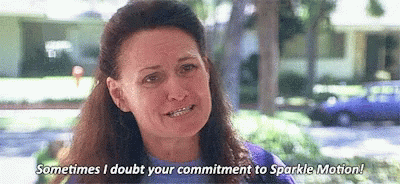I will take a look and give this some thought. I've only skimmed the article so far.
So that took a bit to get around to.
tl;dr - Basically, buddy makes some solid points that folks within the industry (can I call religion/church an industry? that's a whole other can of something, but I'm going to stick with it) have been saying and seeing for years.
Some short notes:
The conservative (Christian nationalists in the US) side of evangelical Christianity is getting more reactionary and arguably more vicious as time passes. This has been a trend for probably at least a decade at this point.
The brief point about clergy being on the receiving end of atrocious behaviour by church members is very very fucking accurate, and not limited to evangelical churches. In my circles (the far left end of Christian churches and clergy) it's generally chalked up to shrinking budgets and financial stresses, but this does cause me to wonder what proportion of this bullying (at best) is also ideologically based.
Some 15 years ago when I was doing Religious Studies (
not insider church work, but more sociology of religion stuff), there were theories going around that the evangelical church as we saw it at the time in Canada and the US would probably not survive another generation. It's had 1-2 generations go through, but the grand-kids aren't going, and the 2nd generation - the kids who are now adults aren't going as much as their parents. The theory was that as a group the evangelical church would have to change. And, well, I guess it has. In the States at least. Canada hasn't gotten as bad. I think. Yet. I do suspect it is only a matter of time though.
The points around Covid just decimating religious communities is absolutely correct. In my circles, we've been saying that the pandemic simply sped up the trends we were already seeing. Diminishing numbers and tighter budgets and different ministry needs being the big areas.
Where I think the author looses their footing is the claim that (evangelical) Christianity has become a political religion. Christianity has
always been political. Turn the other cheek, give them your coat also, who is my neighbour, this is your mother, the last shall be first, etc etc etc.
But the sort of politics that the evangelical church tends to lean towards - prosperity gospel, purity culture, cult of charismatic leaders - is not (IMO) reflected in scripture, and certainly not in the Gospels.
All that aside, the US and Canada are not theocracies. Nor should they become such.
The argument that "evangelicals simply refuse to let their church form them or their beliefs" could be levelled at many
many churches.
[Aside: "many churches aren't focused on [teaching] at all. They focus instead on entertainment..." Before I was ordained, I worked as a student minister for 2 years under the supervision of a fully ordained minister. In one of our required conversations, he asked me "what is the purpose/focus of worship/Sunday morning?" His response was 'entertainment' mine was 'education.']
"The churches have barely better than a snowball's chance in hell of shaping most people's lives." - Yup. And that's even among those people who are interested in what faith has to say in the first place. If in the marketplace of ideas you get 1 hour of 'love your neighbour and don't be a dick' per week, coupled with 20 hours of 'grad her by the pussy,' one of those is going to get drowned out real quick.
"For many Christians, their politics has become more of an identity marker than their faith." This makes me sad. But I do know that political tribalism is massive in the US, so I can't say I'm surprised. What worries me is the intertwining of these two areas though, because with them woven together they will become even more unassailable, unquestionable, and probably unreasonable.
"How many people look at churches in America these days and see the face of Jesus?" Even within my own denomination, it's a scant few.
The discussion of rejecting cultural influences, and the belief that that's even possible was vastly entertaining. (the points from Du Mez.)
Though it also was a good reminder that leading from (and to) a place of fear is a unhealthy at best.
The conversations with the 15 clergy is exactly what I would expect to find. Up to the pandemic, clergy were (on the whole) underpaid and overworked and stressed out. Now? All of that, plus the political bullshit, plus tighter budgets? It's worse. So so so much worse.
There is a twenty year old rift in my own denomination between left-leaning clergy and their congregations. It has been growing consistently for 20 years. That some evangelical clergy are starting to notice similar dynamics surprises me only in the amount of time it took to become apparent.
The Barna group study cited in the later sections is one that I've cited in my own research and lectures. Because of those 29% of clergy that have given 'real, serious consideration to quitting in the last year' the percentage goes up if you are young, or female, or mainline Protestant (as opposed to evangelical).
I would also echo the pain that I head in this article near the end. - "For those of us who have made Christianity central to our lives, the pain of this moment is watching those who claim to follow Jesus do so much to distort who he really was." [I am fully aware that this brings up claims of 'what is truth,' but it doesn't make the pain of watching something near and dear to my heart and soul get ripped apart for the sake of a few folks' wallets.]



